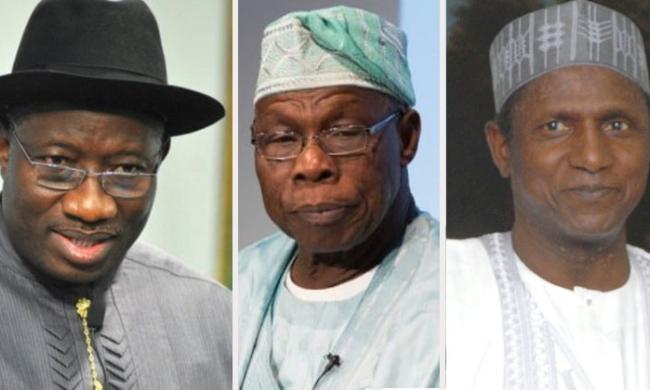Nigeria Still Repaying $10.6 Billion in Loans Acquired by Ex-Presidents, Says World Bank
The World Bank Group Finances has revealed that Nigeria is still in the process of repaying $10.6 billion in loans acquired by former Presidents Olusegun Obasanjo, the late Umaru Musa Yar’Adua, and Goodluck Jonathan. These loans, totaling 69 in number, were secured during the administrations of these former leaders.
As of March 31, 2024, the Debt Management Office (DMO) reported that Nigeria’s total debt, combining both domestic and external obligations, stood at N121.67 trillion (approximately $91.46 billion). Of this, N65.65 trillion ($46.29 billion) is attributed to domestic debt, while external debt amounts to N56.02 trillion ($42.12 billion).
Notably, the current administration under President Bola Tinubu has contributed to this debt, securing $4.95 billion in foreign loans during its first year in office. Additionally, between 2019 and 2024, Nigeria spent a total of $15.55 billion on debt servicing, according to data from the Central Bank of Nigeria.
The WBG Finances platform, an initiative of the World Bank Group Finance and Accounting, provides public access to financial data and reveals that Nigeria is still repaying loans obtained between 2000 and 2014. These loans include the Community Based Poverty Reduction Project ($60 million), Second Primary Education Project ($55 million), Economic Management Capacity Building Project ($20 million), and Small Town Water Supply and Sanitation Programme Pilot Project ($5 million), all taken in 2000.
In 2001, additional loans were acquired, including the Transmission Development Project ($100 million), Privatisation Support Project ($114 million), and HIV/AIDS Programme Development ($90.3 million). The Federal Government secured four more loans in 2002, totaling $438 million, for projects such as the Second Health System Development ($127 million), Community-Based Urban Development Project ($110 million), Lagos Urban Transport Project ($100 million), and Universal Basic Education Project ($101 million).
From 2003 to 2005, Nigeria obtained World Bank loans amounting to $1.1 billion, which are also still being repaid. These loans supported initiatives like the Local Empowerment and Environmental Management Project ($70 million), Second FADAMA Development Project ($100 million), Micro, Small and Medium Enterprises Project ($32 million), Federal Government Economic Reform and Governance Project ($140 million), and Sustainable Management of Mineral Resources ($120 million).
Between 2006 and 2010, the government secured an additional $4 billion in loans, followed by another $4.3 billion between 2011 and 2014, all of which are still outstanding. Among these loans are the Lagos Metropolitan Development and Governance Project ($200 million), Avian Influenza Control and Human Pandemic Preparedness and Response Project for Nigeria ($50 million), and Malaria Control Booster Project ($180 million), all obtained in 2006.
These loans fall under the categories of the International Bank for Reconstruction and Development (IBRD) and the International Development Association (IDA), both of which are components of the World Bank. The IBRD provides loans to middle-income and creditworthy low-income countries, while the IDA offers interest-free loans and grants to the world’s poorest countries. However, the list of loans does not include Trust Funds, Financial Intermediary Funds (FIFs) Commitments, loans to the International Finance Corporation (IFC), or IBRD/IDA guarantees.

